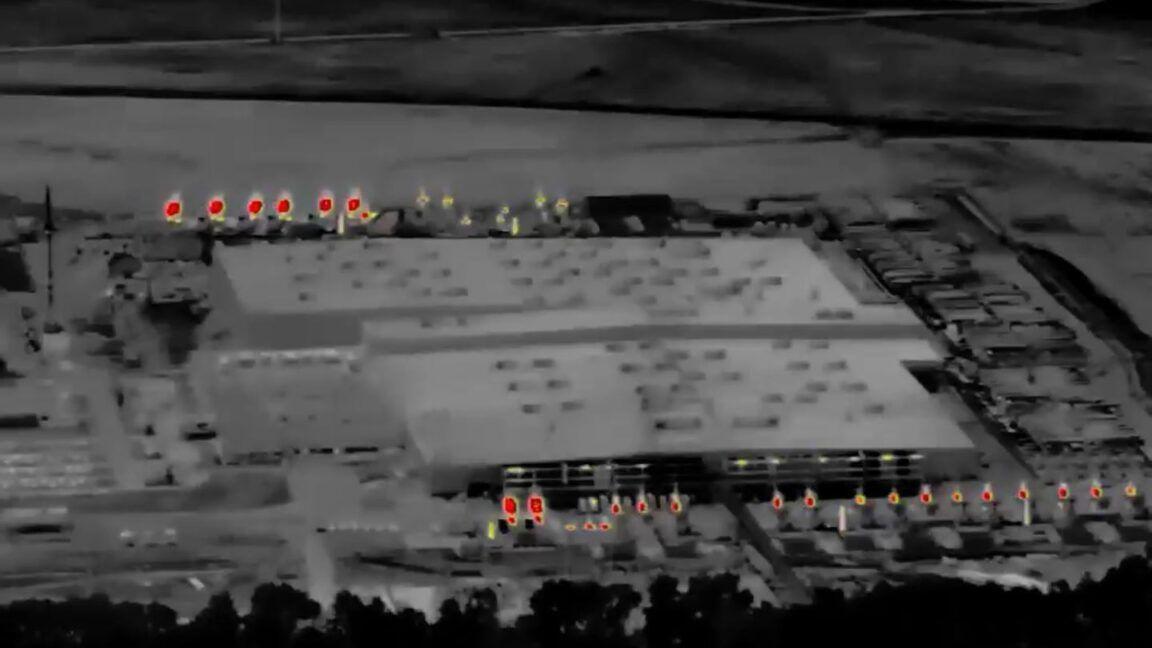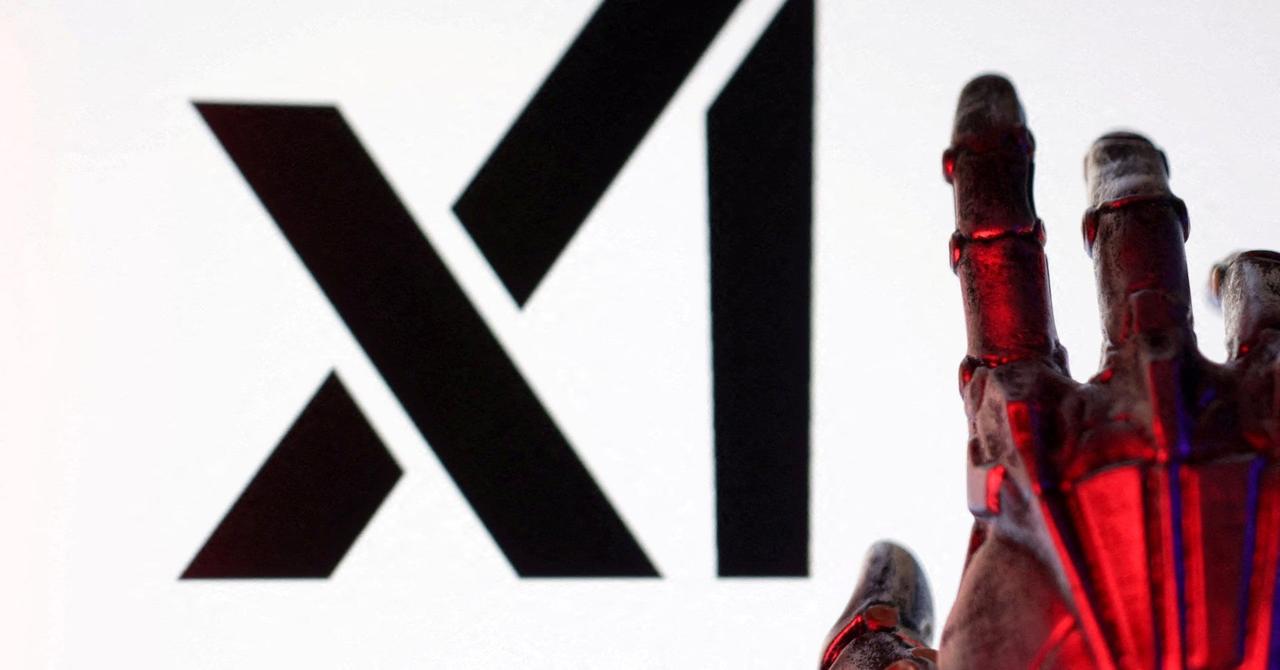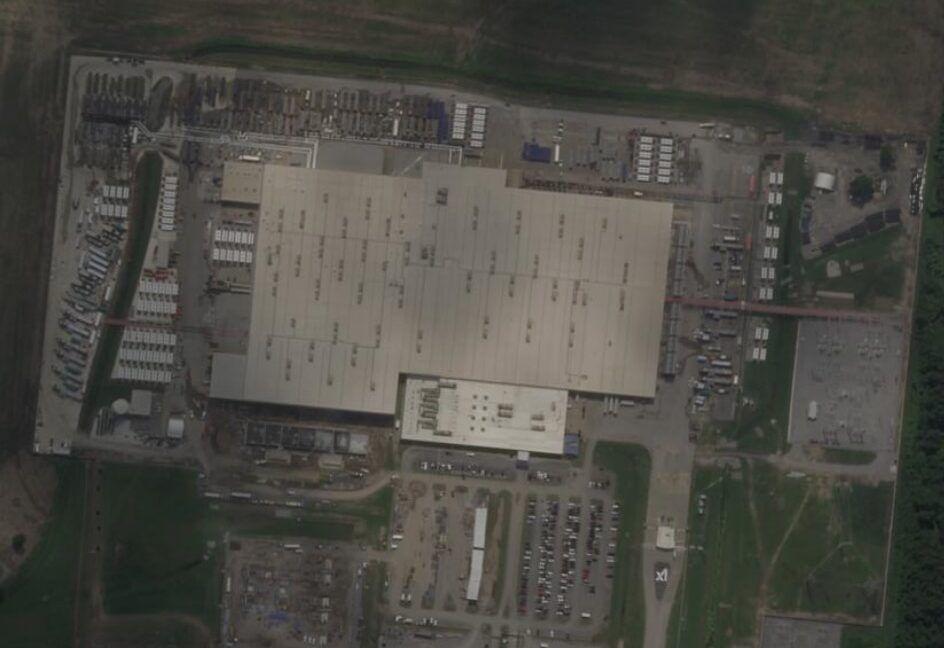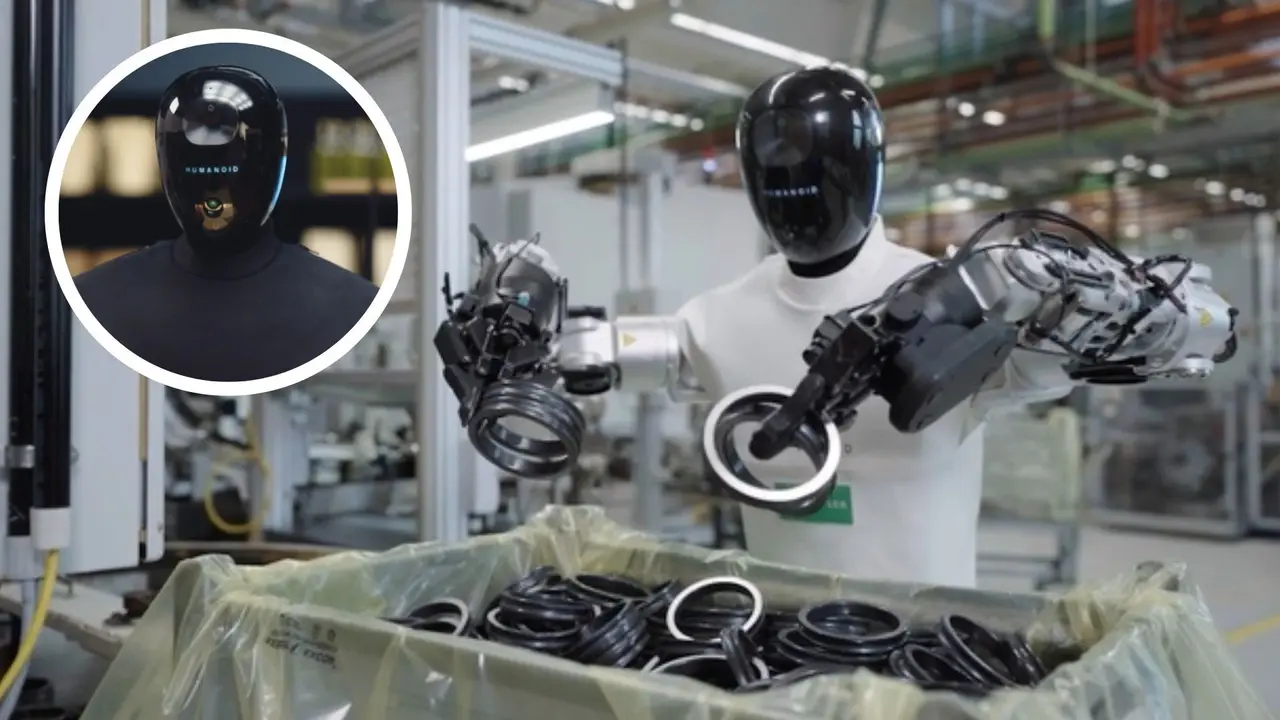Elon Musk's AI Supercomputer Sparks Environmental Concerns in Memphis
2 Sources
2 Sources
[1]
Why a Memphis community is fighting Elon Musk's supercomputer
The project, part of Musk's xAI artificial intelligence business, sits in an old manufacturing plant on more than 550 acres. Before beginning operations there in July, xAI rolled in flatbed trucks loaded with almost 20 mobile power plants, fueled by natural gas, to help meet its electricity demands.Elon Musk, the world's richest man, is building what he says will be the world's largest supercomputer. Its electricity needs will rival those of 100,000 homes. The supercomputer's neighbors in southwest Memphis, Tennessee, have a problem with that. The project, part of Musk's xAI artificial intelligence business, sits in an old manufacturing plant on more than 550 acres. Before beginning operations there in July, xAI rolled in flatbed trucks loaded with almost 20 mobile power plants, fueled by natural gas, to help meet its electricity demands. Residents of the heavily industrial community -- already home to an oil refinery, a steel mill and chemical plants -- see no upside. They contend that Musk's project has made pollution worse in an area already enveloped in smog. "We're getting more and more days a year where it is unhealthy for us to go outside," said KeShaun Pearson, president of Memphis Community Against Pollution and a lifelong resident of the area near the xAI site. So far, xAI is using the Memphis facility to develop its artificial intelligence models on a network of thousands of high-powered computer servers. Some of its models are trained on data from Musk's social media platform, X. Musk started xAI as a competitor to ChatGPT, the chatbot powered by OpenAI, which he helped found but walked away from in 2018 after disagreements with other co-founders. The billionaire, who also controls the electric-car maker Tesla and the rocket company SpaceX, felt that other efforts to create artificial intelligence, particularly at Google, were too risky and could destroy humanity. After his rift with OpenAI, his interest in the technology seemed to subside. But chatbots like ChatGPT were an object of public fascination, and Musk wanted to catch up. Over three weeks in the spring, the Greater Memphis Chamber and local politicians secured a deal for xAI to move into a former Electrolux appliance plant, seeing it as a potential economic stimulus. "Memphis is a city of innovators, so it's no surprise that it feels like home to those looking to change the world," Mayor Paul Young said in announcing the deal. "We get things done here." The pace of xAI's move into Memphis reflects the intensifying race by technology companies to bring more data centers and artificial intelligence facilities online. The industry is leading a surge in electricity demand that is expected to continue for decades. Technology giants -- including Amazon, Google and Microsoft -- have been working to offset their energy consumption with development of solar and wind farms and most recently by investing in nuclear power. That demand, along with growing needs from electric cars and heating and cooling systems, comes as extreme weather events test the electric grid's resilience, heightening concerns like those in Memphis. After the xAI deal was announced in June, officials of the local utility, Memphis Light, Gas and Water, assured the community in an online fact sheet that the company "is paying for all upgrades" involved in supplying electricity and that "there will be no impact to the reliability of availability of power to other customers from this electric load." But the vast scale of potential consumption meant the plan required a sign-off from the Tennessee Valley Authority, the federal agency operating the grid that supplies power to most of Tennessee and parts of six other Southern states. Unlike the local approval of the plant itself, that decision was not quick in coming. "We continue to review the details of their proposal and electricity demand needs," Julia Wise, a spokesperson for the authority, said in a statement on Oct. 22. So in the meantime, xAI bypassed the electric grid by installing the mobile natural gas plants. Those living nearby -- a predominantly African American community with little wealth -- say it all happened with no warning, no public review and no opportunity to understand how the community would benefit. "There is a history of a lack of transparency, leaving us worse off than to start with," Pearson of Memphis Community Against Pollution said. "There is no trust. There is no real communication." Memphis exceeded the National Ambient Air Quality Standards in 2023, the third consecutive year, and is on track to surpass acceptable levels this year. The Environmental Protection Agency said that it and the local health department were reviewing xAI's use of the mobile gas plants but that it did not expect any updates until late November. Neither Musk nor officials at xAI responded to requests for comment for this article. The mobile power plants are expected to be a temporary solution while xAI awaits approval to tap into the electric grid, which the company has requested by the end of the year. That request includes as much as 150 megawatts of electricity, the equivalent of a small natural gas plant used during periods of high demand -- or about 100,000 customers. The Tennessee Valley Authority said it must seek approval from its board to allow a load of that size onto its grid. In a letter to the Tennessee Valley Authority board, the Southern Environmental Law Center urged the agency to "prioritize Memphis families' access to reliable power over the 'secondary purpose' of serving xAI and reject the pending request." During a winter storm in December 2022 that caused power outages across multiple states including Texas, the Tennessee Valley Authority was forced to use rolling blackouts for eight hours because its system also was under strain, the law center noted in its letter. "When TVA cannot meet peak demand, families go without power during increasingly severe hot and cold weather," the organization wrote. If the authority approves the xAI request, there will be environmental considerations beyond Memphis, since the agency continues to meet much of its electricity needs from fossil fuels. The utility operates four coal-fired power plants with 25 generating units that produce enough electricity to supply 4 million homes each year. Although the utility plans to close the units in the future, the entire fleet will not cease operation until at least 2035. In addition to the coal-fired units, the Tennessee Valley Authority operates 17 natural gas plants that generate power from 122 units. The opponents of xAI's operations contend that the facility will require more use of the fossil-fuel plants from a federal utility even though the Biden administration is pushing to decarbonize the energy industry to improve the environment and reduce the impacts of climate change. "These are communities that already have a lot of pollution in the air and water," said Maggie Shober, research director for the Southern Alliance for Clean Energy, a nonprofit organization that takes part in utility cases involving the Tennessee Valley Authority. "It's just one additional burden. It's ridiculous."
[2]
Why a Memphis Community Is Fighting Elon Musk's Supercomputer
Elon Musk, the world's richest man, is building what he says will be the world's largest supercomputer. Its electricity needs will rival those of 100,000 homes. The supercomputer's neighbors in southwest Memphis have a problem with that. The project, part of Mr. Musk's xAI artificial intelligence business, sits in an old manufacturing plant on more than 550 acres. Before beginning operations there in July, xAI rolled in flatbed trucks loaded with almost 20 mobile power plants, fueled by natural gas, to help meet its electricity demands. Residents of the heavily industrial community -- already home to an oil refinery, a steel mill and chemical plants -- see no upside. They contend that Mr. Musk's project has made pollution worse in an area already enveloped in smog. "We're getting more and more days a year where it is unhealthy for us to go outside," said KeShaun Pearson, president of Memphis Community Against Pollution and a lifelong resident of the area near the xAI site. So far, xAI is using the Memphis facility to develop its artificial intelligence models on a network of thousands of high-powered computer servers. Some of its models are trained on data from Mr. Musk's social media platform, X. Mr. Musk started XAI as a competitor to ChatGPT, the chatbot powered by OpenAI, which he helped found but walked away from in 2018 after disagreements with other co-founders. The billionaire, who also controls the electric-car maker Tesla and the rocket company SpaceX, felt that other efforts to create artificial intelligence, particularly at Google, were too risky and could destroy humanity. After his rift with OpenAI, his interest in the technology seemed to subside. But chatbots like ChatGPT were an object of public fascination, and Mr. Musk wanted to catch up. Over three weeks in the spring, the Greater Memphis Chamber and local politicians secured a deal for xAI to move into a former Electrolux appliance plant, seeing it as a potential economic stimulus. "Memphis is a city of innovators, so it's no surprise that it feels like home to those looking to change the world," Mayor Paul Young said in announcing the deal. "We get things done here." The pace of xAI's move into Memphis reflects the intensifying race by technology companies to bring more data centers and artificial intelligence facilities online. The industry is leading a surge in electricity demand that is expected to continue for decades. Technology giants -- including Amazon, Google and Microsoft -- have been working to offset their energy consumption with development of solar and wind farms and most recently by investing in nuclear power. That demand, along with growing needs from electric cars and heating and cooling systems, comes as extreme weather events test the electric grid's resilience, heightening concerns like those in Memphis. After the xAI deal was announced in June, officials of the local utility, Memphis Light, Gas and Water, assured the community in an online fact sheet that the company "is paying for all upgrades" involved in supplying electricity and that "there will be no impact to the reliability of availability of power to other customers from this electric load." But the vast scale of potential consumption meant the plan required a sign-off from the Tennessee Valley Authority, the federal agency operating the grid that supplies power to most of Tennessee and parts of six other Southern states. Unlike the local approval of the plant itself, that decision was not quick in coming. "We continue to review the details of their proposal and electricity demand needs," Julia Wise, a spokeswoman for the authority, said in a statement on Oct. 22. So in the meantime, xAI bypassed the electric grid by installing the mobile natural gas plants. Those living nearby -- a predominantly African American community with little wealth -- say it all happened with no warning, no public review and no opportunity to understand how the community would benefit. "There is a history of a lack of transparency, leaving us worse off than to start with," Mr. Pearson of Memphis Community Against Pollution said. "There is no trust. There is no real communication." Memphis exceeded the National Ambient Air Quality Standards in 2023, the third consecutive year, and is on track to surpass acceptable levels this year. The Environmental Protection Agency said that it and the local health department were reviewing xAI's use of the mobile gas plants but that it did not expect any updates until late November. Neither Mr. Musk nor officials at xAI responded to requests for comment for this article. The mobile power plants are expected to be a temporary solution while xAI awaits approval to tap into the electric grid, which the company has requested by the end of the year. That request includes as much as 150 megawatts of electricity, the equivalent of a small natural gas plant used during periods of high demand -- or about 100,000 customers. The Tennessee Valley Authority said it must seek approval from its board to allow a load of that size onto its grid. In a letter to the Tennessee Valley Authority board, the Southern Environmental Law Center argued that the agency had rejected electricity requests similar to that of xAI because of concerns about grid reliability. During a winter storm in December 2022 that caused power outages across multiple states including Texas, the Tennessee Valley Authority was forced to use rolling blackouts for eight hours because its system also was under strain, the law center noted in its letter. "When T.V.A. cannot meet peak demand, families go without power during increasingly severe hot and cold weather," the organization wrote. If the authority approves the xAI request, there will be environmental considerations beyond Memphis, since the agency continues to meet much of its electricity needs from fossil fuels. The utility operates four coal-fired power plants with 25 generating units that produce enough electricity to supply four million homes each year. Although the utility plans to close the units in the future, the entire fleet will not cease operation until at least 2035. In addition to the coal-fired units, the Tennessee Valley Authority operates 17 natural gas plants that generate power from 122 units. The opponents of xAI's operations contend that the facility will require more use of the fossil-fuel plants from a federal utility even though the Biden administration is pushing to decarbonize the energy industry to improve the environment and reduce the impacts of climate change. "These are communities that already have a lot of pollution in the air and water," said Maggie Shober, research director for the Southern Alliance for Clean Energy, a nonprofit organization that takes part in utility cases involving the Tennessee Valley Authority. "It's just one additional burden. It's ridiculous."
Share
Share
Copy Link
Elon Musk's xAI is building a massive supercomputer in Memphis, raising concerns about pollution and energy consumption in an already industrialized area. The project's power needs and temporary use of natural gas plants have sparked controversy among local residents.

Elon Musk's AI Ambitions Clash with Local Concerns
Elon Musk, the world's wealthiest individual, is constructing what he claims will be the world's largest supercomputer in Memphis, Tennessee. This ambitious project, part of Musk's xAI artificial intelligence business, has ignited a controversy in the local community due to its enormous energy requirements and potential environmental impact
1
2
.The Supercomputer Project
The xAI facility is located in a former Electrolux appliance plant, sprawling across more than 550 acres. The project aims to develop artificial intelligence models using a network of thousands of high-powered computer servers. Some of these models are being trained on data from Musk's social media platform, X
1
2
.Energy Demands and Temporary Solutions
The supercomputer's electricity needs are staggering, comparable to those of 100,000 homes. To meet these demands while awaiting approval to connect to the local power grid, xAI has deployed nearly 20 mobile power plants fueled by natural gas
1
2
.Community Concerns
Residents of southwest Memphis, an area already burdened with industrial facilities including an oil refinery, a steel mill, and chemical plants, are voicing their opposition to the project. They argue that Musk's supercomputer is exacerbating pollution in a region already struggling with poor air quality
1
2
.KeShaun Pearson, president of Memphis Community Against Pollution, expressed concern: "We're getting more and more days a year where it is unhealthy for us to go outside"
1
2
.Environmental Impact
Memphis has exceeded the National Ambient Air Quality Standards for three consecutive years and is on track to surpass acceptable levels again this year. The Environmental Protection Agency, along with the local health department, is reviewing xAI's use of mobile gas plants
1
2
.Regulatory Challenges
The project's massive energy requirements necessitate approval from the Tennessee Valley Authority (TVA), the federal agency operating the regional power grid. xAI has requested up to 150 megawatts of electricity, equivalent to a small natural gas plant's output
1
2
.Related Stories
Controversy and Lack of Transparency
The local community, predominantly African American and economically disadvantaged, claims the project was implemented without proper warning, public review, or discussion of potential benefits. This has led to a lack of trust and communication between the residents and the project developers
1
2
.Broader Implications for AI and Energy
The xAI project in Memphis reflects a larger trend in the tech industry, with companies racing to bring more data centers and AI facilities online. This surge in electricity demand is expected to continue for decades, raising questions about sustainability and grid resilience
1
2
.While tech giants like Amazon, Google, and Microsoft are working to offset their energy consumption through renewable energy investments, the xAI project's approach has sparked debate about the environmental costs of AI development
1
2
.Future Uncertainties
As xAI awaits approval to connect to the electric grid, the controversy surrounding the project continues to grow. The Southern Environmental Law Center has urged the TVA to prioritize local residents' access to reliable power over serving xAI's needs, highlighting the potential strain on the grid during extreme weather events
1
2
.The outcome of this dispute could have far-reaching implications for the future of AI development, energy consumption, and community rights in the face of technological advancement.
References
Summarized by
Navi
Related Stories
Elon Musk's xAI Faces Pollution Allegations Over Colossus Supercomputer in Memphis
26 Apr 2025•Technology

Elon Musk's xAI Faces Environmental Scrutiny Over Unauthorized Gas Turbines in Memphis
10 Apr 2025•Policy and Regulation

xAI Secures Controversial Air Permit for Memphis Data Center Amid Environmental Concerns
04 Jul 2025•Technology

Recent Highlights
1
SpaceX acquires xAI as Elon Musk bets big on 1 million satellite constellation for orbital AI
Technology

2
French Police Raid X Office as Grok Investigation Expands to Include Holocaust Denial Claims
Policy and Regulation

3
UNICEF Demands Global Crackdown on AI-Generated Child Abuse as 1.2 Million Kids Victimized
Policy and Regulation





